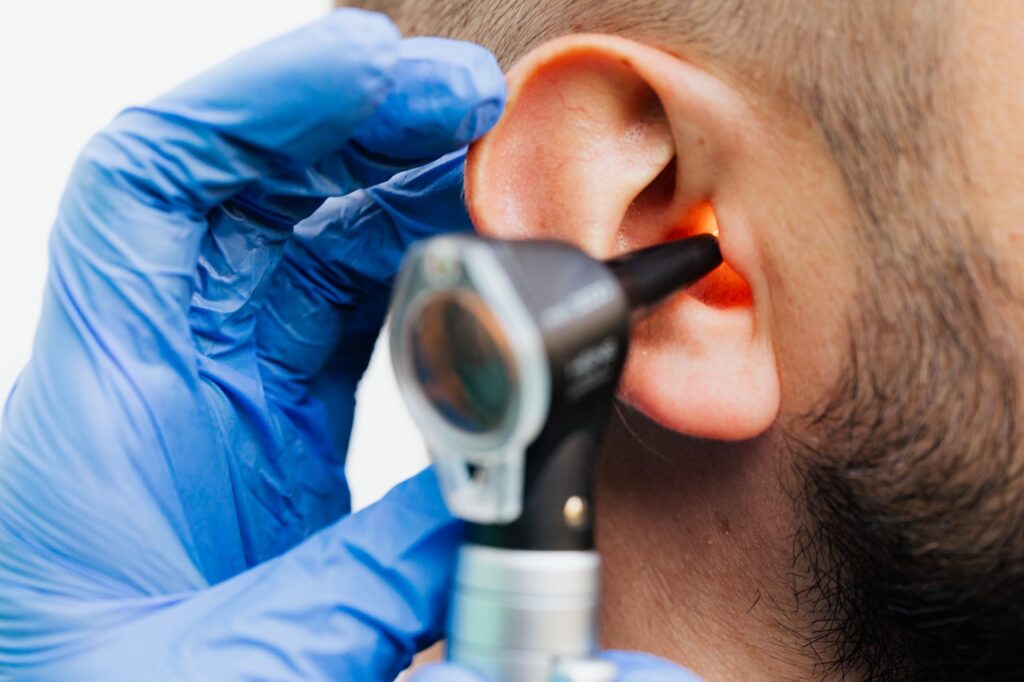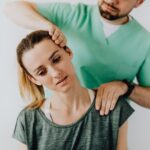
Did you know that 750 million people around the world experience persistent or recurring ringing in their ears at some point in their lives?
No matter how brief or mild the tinnitus is, nobody wants to have these issues. So, how do you prevent these, and what can you do if you’ve indelibly damaged your ears?
In this article, we’re going to break down everything you need to know about ear protection, how to prevent ear damage, what to do if your ears are ringing, and how you can get protective equipment for your ears.
Read on to learn how to protect your eardrums from damage.
See a Doctor if You Experience Any Pain in Your Ear
If you are concerned about protecting your eardrums from damage, it is important to take the necessary steps for ear health. You should also see a doctor if you experience any pain in your ear, as this may be a sign of an underlying issue. If you’re in a noisy environment, it is important to keep volume levels as low as possible, preferably below 60 decibels.
It is beneficial to protect your eardrums from damage because any trauma or damage can lead to hearing loss, dizziness, and ringing in the ears. You can also have regular ear exams. A professional can conduct an auditory exam to determine if you are experiencing any difficulty hearing problems or if there is any issue with your eardrum that needs to be addressed.
They can also provide advice on how to protect your ears and provide necessary preventive treatment if needed. They can also determine whether you need to use a hearing aid to restore hearing problems. If you’re having problems restoring your hearing aids, you can check with professionals in your area.
Wear Ear Protection
To protect your eardrums from damage, it is important to always wear ear protection in loud environments. This includes the use of:
- earplugs
- earmuffs
- protective noise-reduction headphones
These should always be worn when attending a live concert, going to a nightclub, or any other environment where exposure to loud noise is likely. These ear protection devices are designed to reduce and filter out excess sound, allowing you to enjoy activities while protecting your ears.
Avoid Loud Environments Whenever Possible
One of the most important ways to protect your eardrums from damage is to avoid loud environments whenever possible. Excessive exposure to loud sounds can cause permanent hearing loss, tinnitus, and other hearing problems. Move away from the source of the noise and close the windows if you are inside.
If the noise is too loud, leave the premises and find a quieter area. Other strategies to reduce your exposure to loud sounds include avoiding loud music concerts and checking the noise levels of sporting events or concerts before attending.
Avoid Putting Foreign Items Into the Ear
Avoiding putting foreign objects in the ear is one action that can help. Earbuds, cotton-tipped swabs, and other small objects can easily get stuck in the ear, scratching and damaging the delicate eardrums. Instead, use over-the-counter cleaning solutions as directed and as advised by your doctor.
Do Not Use Earphones or Headsets Excessively
One way to do this is to avoid using earphones or headsets excessively. It is recommended to limit the volume of your headset to prevent long-term damage to your hearing. Try to reduce the amount of time you use headsets.
If you find that the sound seems too loud even when set at a moderate level, then it’s time to take a break or switch to a lower volume level. If you find that you are using headsets or earphones frequently, consider using noise-canceling earbuds or over-the-ear headphones to reduce the amount of noise that reaches your eardrums.
Do Not Try to Remove Ear Wax Yourself
To protect your eardrums from damage, it is important to never attempt to remove ear wax yourself. Trying to remove excessive ear wax buildup on your own can cause further complications as well as damage to the eardrum. It is important to see a doctor immediately if you suspect that any excess ear wax is blocking the ear canal.
Avoid Exposing Yourself to Extreme Temperatures
High temperatures can cause uncomfortable side effects like extreme caloric burn, fluid loss, and heat strain. Low temperatures can bring on ear infections, and cause increased stress on your eardrums. Stick to comfortable temperatures to help keep your ears safe.
If you’re sensitive to the cold, put on a hat or other head covering before going outdoors. Avoid all sudden changes to your air temperatures, and be sure to regulate your indoor temperatures properly.
Take Care When Swimming
Taking time to care for your eardrums when swimming can help protect them from damage. It is necessary to avoid submerging your ears in water that is too cold. Using earplugs is a great way to prevent cold water from entering your inner ear while swimming.
Make sure to never try to pop your ears underwater. It can be tempting, but this can damage your eardrums. Never put anything in your ears while swimming, even if you think it is safe.
Also, avoid swimming in water that is too deep or filled with chemicals or bacteria. These can all be damaging to the delicate tissues of the eardrums.
Check Medications Side effects on the Ears
One way to protect your eardrums from damage is to check the medication’s side effects on the ears. Many prescription medications, over-the-counter drugs, dietary supplements, and herbal products can have detrimental effects on your ears. Be sure to talk to your doctor or pharmacist to get the full range of side effects associated with taking a new medication.
Read the warning label carefully and research each medication used before taking it. Most medications will have some kind of warning label or indication of their potential effects on the ears.
Protect Your Ear Drums Now
It’s essential to protect your eardrums from potential damage, and taking preventative measures is key. Avoid loud or continuous noise, use ear protection when necessary, get regular check-ups, and avoid complex treatments unless necessary.
For more information, be sure to ask your doctor or audiologist. Don’t let ear damage put a damper on your hearing, so take proactive measures today!
Did you learn something new today? Make sure to browse the rest of the blog for more articles.






